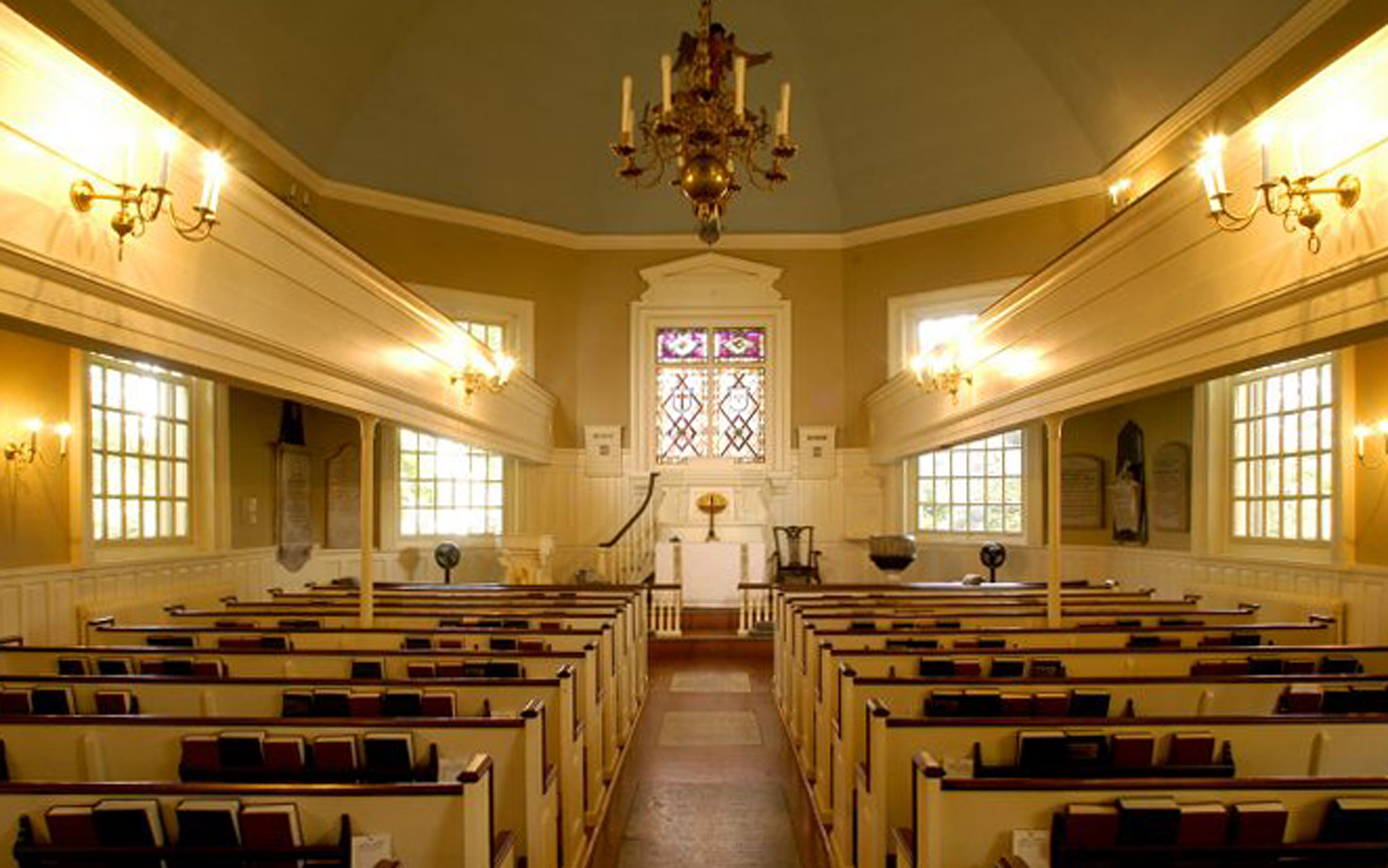Ship of Fools: Gloria Dei Old Swedes Episcopal Church, Philadelphia, Pennsylvania, USA
 Ship of Fools: Gloria Dei Old Swedes Episcopal Church, Philadelphia, Pennsylvania, USA
Ship of Fools: Gloria Dei Old Swedes Episcopal Church, Philadelphia, Pennsylvania, USA
Subdued and small Ash Wednesday service in this beautiful historic church
Read the full Mystery Worshipper report here
Comments
In a context where the English language is dominant it is hardly a big jump to the Episcopla Church
And FWIW, a “swede” isn’t a root vegetable in the US. It’s called a “rutabaga” here.
As the MW report says, the claim made by Old Swedes is that it is “the oldest congregation in continuous existence in the United States.” Whether “congregation” is an important distinction in the sense of “organized group of people” in contrast to, say, parish in the geographical sense (which would have applied in colonial Virginia) or cathedral, which may or may not have a standing congregation, or whether “continuous existence” has some particular import here, I cannot say.
Miss Amanda would gently encourage @Enoch and other readers of MW reports to click on [Click here to display church info] before posing questions that could be answered by reading the contents thereof.
The webpage for St. John’s, Hampton says this about its history after the American Revolution: “Although several priests officiated in the parish in the late 1700’s and early 1800’s, its life could be described as moribund, and the building was severely neglected.” It also suggests that there was no vestry during that time. So perhaps “congregation in continuous existence” isn’t an accurate description of it during that period? I dunno.
Like I said, I generally takes claims such as these with a grain of salt. But I do take note of the fact that while Old Swedes describes itself as “the oldest congregation in continuous existence in the United States,” St. John’s, Hampton, describes itself as “the oldest English-speaking parish in America.” The lawyer in me assumes specific words were chosen for specific reasons; otherwise just say “the oldest church in America.” But maybe not, and maybe Old Swedes is just making an unsupportable claim.
Either way, I fear we may be trying Miss Amanda’s patience, so I’ll apologize in advance and speculate no more.
In the unlikely event that it was not an error, it's possible that TEC, like SEC, has provision to move the imposition of ashes to later in the first week in Lent if required (usually because of availability of clergy).
Let us confine this discussion to what happened at Old Swedes Church, please.
[reassuming her gentle pleasant demeanor]
In colonial days, folk were not as denominationally inclined in identity. The few congregations of the Church of Sweden, mainly in Delaware, were often served by CoE clergy, as were German congregations in Nova Scotia. Some became absorbed into the developing Anglican or Episcopalian (after 1783) jurisdictions, others became part of Lutheran networks. Given the distances and travelling times from the old country in terms of obtaining replacement clergy, settlers usually went for the more convenient availability of CoE clergy.
Some Swedish Lutheran congregations migrated to the Episcopal Church in the mid-1700s as their continued adherence to the mother church in Sweden was proving impractical once Swedish efforts at colonization in North America proved to be a step too far. Relations between the CofE and the CofSwe were fairly cordial around 1700, but an attempt at intercommunion spear-headed by John Robinson who had been the English representative in Stockholm and was later Bishop of London failed because the Swedes found the Thirty-Nine Articles too Calvinistic.